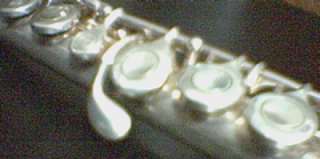![]()
![]() Bossa and Me
Bossa and Me
 Two years ago, I didn't know the word "Bossa Nova". I've been
playing flute for over ten years, and I was becomming a little bored of
classical music. A year ago, I started playing Bossa Nova flute, just for
a change, and in order to play a piece better, I purchased a CD, which
contained best songs of Antonio Carlos Jobim.
Two years ago, I didn't know the word "Bossa Nova". I've been
playing flute for over ten years, and I was becomming a little bored of
classical music. A year ago, I started playing Bossa Nova flute, just for
a change, and in order to play a piece better, I purchased a CD, which
contained best songs of Antonio Carlos Jobim.
It was this CD that got me into Bossa Nova. I enjoyed listening to a reserved,
controlled, but soft vocals of Bossa Nova singers. However, above all the
elements of Bossa Nova, I loved the rythmic syncopations of Bossa Nova.
Also, the history of Bossa Nova captured my attention. Some criticized
that Bossa Nova has turned away from the traditional Brazilian music, and
helped alienate people from its culture by admiring an American culture.
Such was the tendency seen everywhere in the world.
As late medieval to modern Japanese history is my area of specialty, I'd
like to present Tokyo as an example of the city where a rapid modernization
took place. Japan too faced rapid modernization in the past decades, and
people were forced to adapt to a new life style. People, with a slight
hesitation, have accepted things "western", but in return had
to lose things "Japanese".
Artists and writers reacted to modernization differently. Some embraced
new changes, but some struggled to protect the old culture. But, who could
stop the strong current of "time"? No one wears kimono at home
anymore, and people prefer to live in a western style condominium, instead
of sleeping on tatami.
However, there always were people who be aware of the gravity of losing
their tradition. As a result, artists, writers, or musicians, whose profession
was to express themselves, successfully blended old and new culture, as
a means to protect their cultural originality.
Bossa nova was a natural, and inevitable change brought to the traditional
samba. No one could stop the society from changing. Some may say Bossa
Nova has turned away from the traditional samba, but maybe it was an attempt
to go back to its original form, and to protect tradition that was about
to be lost, under rapid modernization. If the young generation wanted "Cool
jazz", who could stop them from wanting it? Instead, the creation
of the new form of samba, with jazz-elements was needed.
I think Bossa Nova was a positive reaction to the modernization in Brazil.
It appeals to all generations with its fashionable style, but reminds us
of its history with its nostalgic sound at the same time, which is the
idea called "Saudade" in Portuguese.